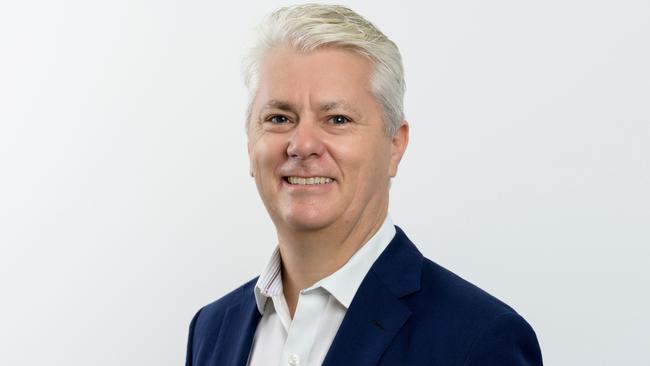Cost of living crisis a good time for low-cost telcos, says Superloop boss Paul Tyler
Superloop has added 87,000 new customers and seen its revenue jump near 30 per cent as consumers apparently shift from the major telcos to low-cost players.

Superloop has managed to halve its losses as its revenue jumped nearly 30 per cent on churn from some of its largest competitors.
The telco told The Australian it was a great time to be the low-cost option amid a cost-of-living crisis that’s driving more and more customers from tier one telcos to the smaller players.
On Wednesday, Superloop reported a total loss of $14.7m, down almost one third from the $43.1m it reported in FY23.
Those losses arrived on the back of its revenue jumping 29.3 per cent to reach $416m in the 12 months to June 30, up from $322m the previous year.
Superloop said its revenue surge “was driven by organic growth” as it added 87,000 new customers over FY24.
Telco boss Paul Tyler said Superloop had managed to snap up a number of savvy consumers who had begun to increasingly scrutinise their bills.
“Ironically, the tougher the cost-of-living pressures are, the higher interest rates are, the more people are retesting their utility supplies and the more that they are questioning whether they’re on the right deal, particularly if you’re a customer of one of the traditional incumbents,” he said. “All those sorts of realities drive you to retest and then you go towards value products, and we represent value.”
Superloop’s earnings before interest, tax, depreciation and amortisation were $38.5m, up from $25.6m the previous year.
The telco expected its EBITDA to jump again in FY25, by more than 50 per cent.
“If you look at our outlook, we exceeded our guidance in FY24 and our outlook for FY25 is to uplift our EBITDA by more than 50 per cent again,” Mr Tyler said.
“Obviously, there’s a huge amount of efficiency that’s expected to deliver that outcome.”
Wednesday’s result was proof that being a low-cost telco was not only possible in this market but could be done with strong margins, Mr Tyler said.
“We sit at the sort of the lower end of the retail price curve, but we do it while we’re still generating acceptable margins,” he said.
It did that with a low-cost model that saw it increasingly use automation, machine learning and AI, he said.
But the telco also saved a significant sum, with about 50 per cent of its staff offshore.
The combination of those two factors had helped it largely shake off inflationary pressures, Mr Tyler said.
Investors appeared to see promise in Superloop’s results and FY25 outlook, with its share price surging 6.6 per cent to close at $1.70.
Analysts were also similarly impressed, with Wilson’s Advisory noting the telco’s upped FY25 guidance was partly due to an Origin contract it had managed to snatch from competitor Aussie Broadband this year.
That was a major blow to Aussie Broadband which followed the telco’s failed takeover attempt of Superloop in March, acquiring a 19.9 per cent stake and a $466m takeover bid.







To join the conversation, please log in. Don't have an account? Register
Join the conversation, you are commenting as Logout